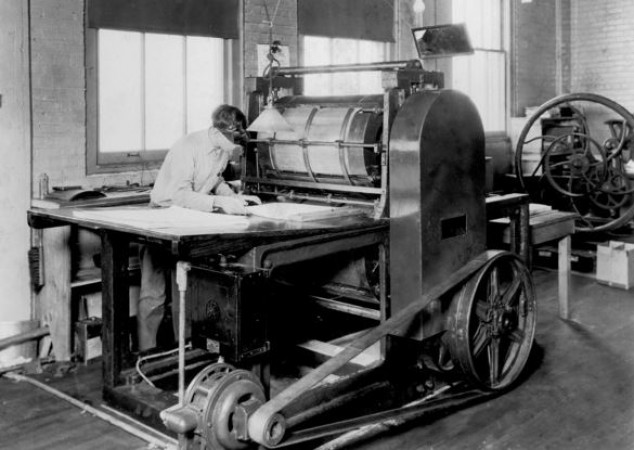
Introduction
The invention of the printing press by Johannes Gutenberg in the 15th century marked a pivotal moment in human history. This revolutionary device transformed the way knowledge and information were disseminated, leading to a profound impact on various aspects of society. In this article, we will delve into the significance of Gutenberg's printing press and explore its far-reaching consequences.
The Precursor to the Printing Press
Before Gutenberg's invention, written materials were laboriously produced by hand. Scribes painstakingly copied texts, limiting the production of books and making them rare and expensive. This method was time-consuming and prone to errors, hindering the widespread dissemination of knowledge.
Gutenberg's Invention
Johannes Gutenberg, a German blacksmith and inventor, introduced the printing press in the mid-15th century. His innovative device incorporated movable type, allowing for the efficient printing of texts. Gutenberg's printing press enabled the mass production of books, revolutionizing the way information was recorded and shared.
The Printing Press and the Gutenberg Bible
One of the notable achievements of Gutenberg's printing press was the production of the Gutenberg Bible. This masterpiece was the first major book printed using movable type in the Western world. The Gutenberg Bible became an emblem of Gutenberg's invention and a testament to the transformative power of the printing press.
The Impact of the Printing Press
Knowledge Accessibility
The printing press democratized access to knowledge. With the ability to produce books more quickly and affordably, information became accessible to a broader audience. The spread of literacy increased as books became more readily available, empowering individuals with knowledge and fostering intellectual growth.
Spreading Ideas and Revolution
The printing press facilitated the dissemination of ideas, sparking intellectual revolutions across Europe. Pamphlets, newspapers, and other printed materials spread radical ideas, challenging established authority and fostering debates that shaped societies. The printing press played a crucial role in fueling intellectual movements, including the Renaissance and the Reformation.
Cultural Renaissance
The printing press fueled a cultural renaissance, as literature, art, and scientific knowledge flourished. The availability of books allowed for the preservation and transmission of cultural heritage, propelling artistic and intellectual developments. Ideas and discoveries were shared more widely, leading to cultural exchanges and the enrichment of various fields.
Scientific Advancement
The printing press contributed significantly to scientific advancement. Scientists could now publish their findings and share knowledge with their peers, accelerating the progress of scientific inquiry. The dissemination of scientific texts and discoveries inspired further exploration and laid the foundation for modern science.
Evolution of Printing Technology
Over time, printing technology continued to evolve. Improved presses, such as the steam-powered press and the rotary press, further increased the efficiency and speed of printing. The development of lithography, offset printing, and digital printing expanded the possibilities of mass production, making printed materials more accessible and cost-effective.
Printing Press in the Modern Era
While digital technology has transformed the way information is disseminated, the printing press remains relevant in the modern era. Books, newspapers, and other printed materials continue to play a vital role in education, communication, and entertainment. The printing press has adapted and coexists with digital platforms, catering to different preferences and needs.
Challenges and Criticisms
Despite its immense impact, the printing press has faced criticism and challenges. Concerns about the accuracy of printed information, censorship, and environmental impact have been raised. However, the enduring relevance and adaptability of the printing press have allowed it to overcome these obstacles and maintain its significance.
Conclusion
The invention of the printing press by Johannes Gutenberg in the 15th century transformed the world, revolutionizing the spread of knowledge and information. This groundbreaking invention democratized access to knowledge, fostered cultural and intellectual growth, and accelerated scientific advancements. The printing press continues to shape our lives, coexisting with digital technologies while preserving its unique role in society.
Unveiling the Potential Side Effects of 5G Technology: Health Concerns and Environmental Impact
Google Launches Google Play Games for PC in India, Expanding Gaming Opportunities for Millions
The Evolution of Smartphones: Unveiling the IBM Simon, the Pioneer of Mobile Technology